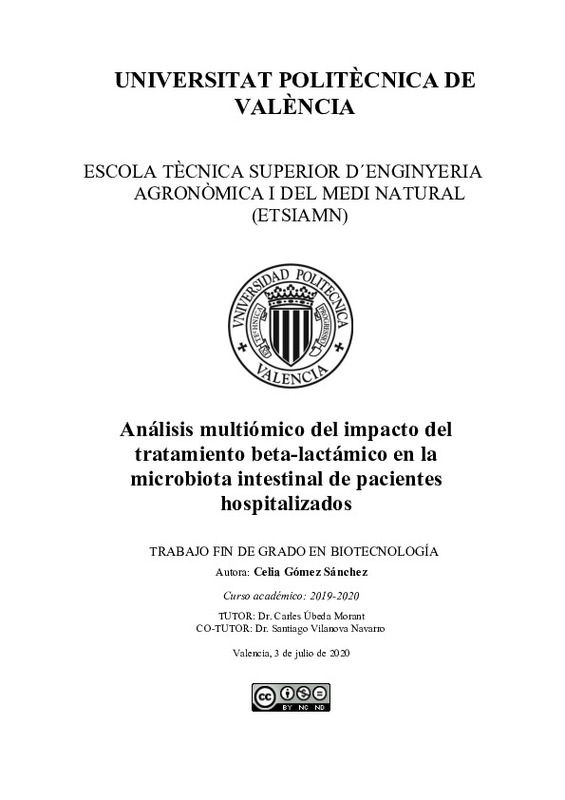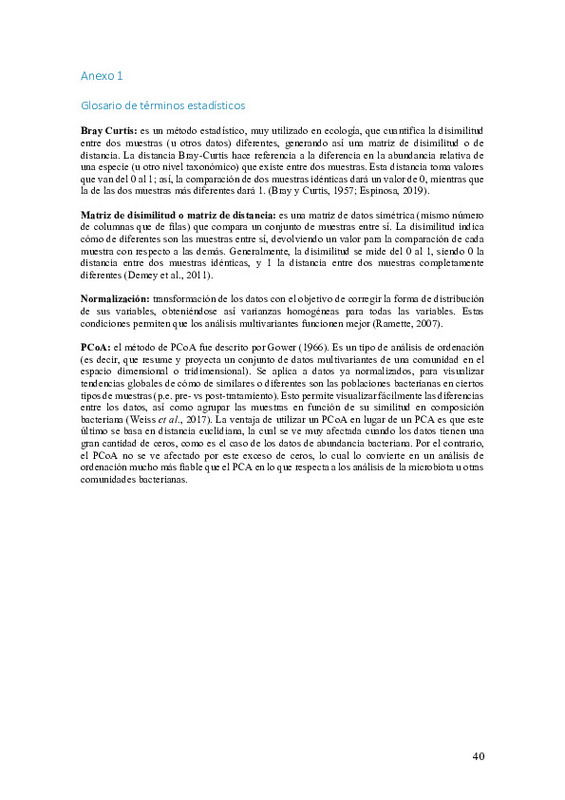JavaScript is disabled for your browser. Some features of this site may not work without it.
Buscar en RiuNet
Listar
Mi cuenta
Estadísticas
Ayuda RiuNet
Admin. UPV
Análisis multiómico del impacto del tratamiento beta-lactámico en la microbiota intestinal de pacientes hospitalizados
Mostrar el registro completo del ítem
Gómez Sánchez, C. (2020). Análisis multiómico del impacto del tratamiento beta-lactámico en la microbiota intestinal de pacientes hospitalizados. http://hdl.handle.net/10251/149347
Por favor, use este identificador para citar o enlazar este ítem: http://hdl.handle.net/10251/149347
Ficheros en el ítem
Metadatos del ítem
| Título: | Análisis multiómico del impacto del tratamiento beta-lactámico en la microbiota intestinal de pacientes hospitalizados | |||
| Autor: | Gómez Sánchez, Celia | |||
| Director(es): | Ubeda Morant, Carles | |||
| Entidad UPV: |
|
|||
| Fecha acto/lectura: |
|
|||
| Resumen: |
[EN] Gut microbiota has a crucial effect on individual’s health. Microbiota alterations such as the ones
produced by antibiotics can result in negative effects in health, including the development of
infections. During ...[+]
[ES] La microbiota intestinal tiene un efecto fundamental en la salud del individuo. Alteraciones en la microbiota como las que producen los antibióticos pueden producir efectos adversos en la salud, incluyendo el desarrollo ...[+]
|
|||
| Palabras clave: |
|
|||
| Derechos de uso: | Reconocimiento - No comercial - Sin obra derivada (by-nc-nd) | |||
| Editorial: |
|
|||
| Titulación: |
|
|||
| Tipo: |
|
recommendations
Este ítem aparece en la(s) siguiente(s) colección(ones)
-
ETSIAMN - Trabajos académicos [3541]
Escuela Técnica Superior de Ingeniería Agronómica y del Medio Natural








